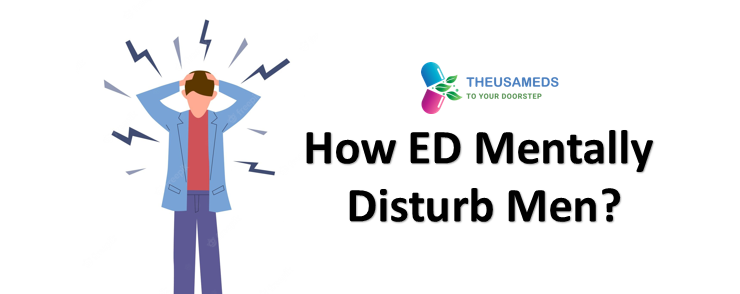
While men often have difficulty seeking help, you can contact a mental health counselor or healthcare provider for assistance. There are also hotlines for mental health problems, such as the 988 Suicide & Crisis Lifeline. These hotlines can connect you with a trained counselor, while the National Helpline Database also contains information on mental health resources. Common depression medications can cause a variety of side effects, including low libido and delayed ejaculation. While for the treatment of ejaculation solution are available like super p force. You should inform your healthcare provider that you have issues with ED and ask for a medication that has fewer sexual side effects.
Common physical causes of ED
Before you can discuss treatment options with your doctor, it’s important to know the cause of your ED. The problem can be caused by an underlying health problem, such as diabetes or a hormone imbalance. Your doctor can conduct a physical exam to identify any underlying issues. He can also use lab tests to determine whether there is a problem with your prostate or other organs. He can also perform an ultrasound to evaluate blood flow and look for signs of atherosclerosis or tissue scarring.
ED can be a distressing event for men. It can trigger feelings of fear, stress, and anxiety. Many men have an initial reaction of emasculation, which is particularly difficult to live with for young men. The emotional trauma can cause deep insecurities and affect romantic relationships. Some men even experience suicidal thoughts.
Treatment options for ED
Treatment options for ED that mentally disturb men include prescription medications like p super force and alternative therapies. Prescription medications can be highly effective in reducing symptoms, but may have unwanted side effects in some men. They may not be suitable for men with certain medical conditions, such as severe heart disease or low blood pressure. They may also not work at all. It is therefore important to discuss your options with a doctor before beginning any treatment.
Psychological factors such as depression and anxiety can exacerbate symptoms of erectile dysfunction. For this reason, psychological counseling may be necessary. While consultation with a mental health professional isn’t necessary in all cases, it is recommended for men with ED who are experiencing symptoms of depression or anxiety. It is rare for such a consultation to be detrimental and is often a valuable step in treating sexual dysfunction.
Guilt and shame are common symptoms of ED
Men who are suffering from erectile dysfunction (ED) often feel guilty for not being able to satisfy their partners. This can further compound an already troubling cycle. Furthermore, feelings of guilt are often associated with depression. If you know a man with ED, encourage him to be open with you about his condition. If necessary, consider seeking professional help.
It is essential for both partners to seek support from a trusted source. Though many partners find ED difficult to discuss, they can build empathy and openly address the issue of ED. However, it is important not to put your partner on the defensive when it comes to this issue, as it may make him feel guilty.
UCSF penile rehabilitation protocol
In the UCSF penile rehabilitation protocol for men, patients are evaluated using a comprehensive assessment that includes psychosocial, cultural, and methodical medical histories. In addition, new patients should undergo a thorough physical examination focused on their cardiovascular, genital, endocrine, and neurological systems. A penile examination is helpful because it allows physicians to determine whether a particular problem is a contributing factor in the patient’s condition. Patients with ED should also be evaluated for hypertension, diabetes, and heart disease, which are among the leading causes of ED.
If other therapies have failed to produce results, patients may turn to penile prosthesis surgery. This procedure involves placing two inflatable cylinders inside the penis, one at the scrotum and one in the penis’s base. Patients then fill these cylinders with water using a pump or water balloon behind the pubic bone. This procedure is safe and effective, although patients will experience soreness for about two to three weeks.
Hormone therapy for prostate cancer can cause ED
Men suffering from prostate cancer may find that hormone therapy is causing ED. The body produces hormones to regulate sexual function and help it to grow. Testosterone is one of these hormones. They travel through the bloodstream to affect cells in other organs.
ED may also be caused by vascular disease or neurological disorders. A stroke or diabetes can damage the nerves that send signals to the penis. Mental problems such as anxiety and depression may also contribute to ED. A man suffering from ED should talk to his doctor and partner, as it can affect his self-esteem and confidence.
A low PSA level is a sign that the treatment is working. However, the rate at which the PSA level drops will vary among men. If the PSA level is consistently rising, the treatment is no longer working. In this case, doctors may want to consider other options such as other types of hormone therapy or a combination of treatments.







